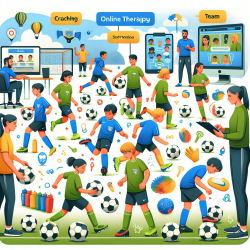In an era where technology bridges gaps and connects people across distances, schools are increasingly turning to online therapy as a means to support their students' mental health and well-being. As a Special Education Director with a passion for ensuring every child receives the support they need to thrive, I've witnessed firsthand the transformative power of virtual therapy. This approach not only offers a lifeline to those in remote or underserved areas but also provides a flexible, engaging, and effective support system for students, parents, and educators alike.
For school counselors and educators looking to expand their toolkit, online therapy presents a wealth of opportunities. Here are several ways virtual therapy is making a positive impact in educational settings:
- Accessibility: One of the most significant advantages of online therapy is its ability to reach students regardless of geographical barriers. Whether a child is in a rural town or a bustling city, they can access high-quality mental health support from the comfort of their own home or school.
- Flexibility: Traditional therapy sessions require scheduling around school and work, which can be a challenge for busy families. Online therapy offers greater flexibility, allowing sessions to be held at times that are most convenient for the student and their family.
- Comfort: For many students, speaking to a therapist face-to-face can be intimidating. Virtual therapy provides a familiar and comfortable environment for children and teens, often leading to more open and honest communication.
- Innovation: Online therapy platforms incorporate engaging, interactive tools that cater to young people's love for technology. This can make therapy sessions more appealing and effective for students, particularly those who are reluctant to engage in traditional counseling methods.
As educators and counselors, it's our duty to stay abreast of the latest advancements in student support services. Embracing online therapy not only broadens our ability to meet diverse needs but also positions us as forward-thinking leaders in education. Furthermore, for professionals seeking meaningful online therapy jobs, the expanding virtual therapy space offers a unique opportunity to make a significant impact on students' lives from anywhere in the world.
To parents, I say this: online therapy is a viable, effective, and convenient option to consider for your child's mental health and well-being. It's an innovative solution that respects the pressures and demands of modern family life, while providing your child with the support they need to succeed both academically and personally.
In conclusion, as we navigate the challenges and opportunities of the 21st-century educational landscape, online therapy stands out as a beacon of hope and progress. By embracing virtual therapy, we can ensure that every student has access to the mental health support they need to flourish. Let's continue to inspire and be inspired by the endless possibilities that technology brings to education.










